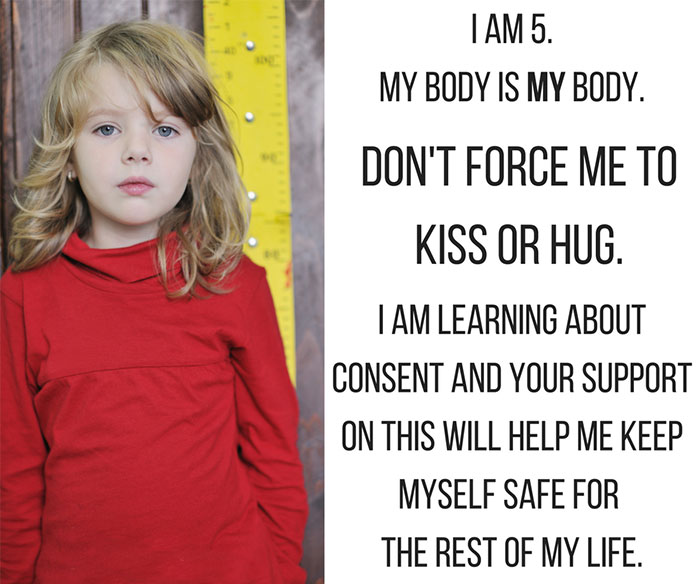 For most questions relating to the child being resistant to come to the meal table, resistant to eating the food the parent has prepared or meltdowns relating to food, some of the tips in When the meal table becomes a battleground tend to resolve the issues fairly quickly.
For most questions relating to the child being resistant to come to the meal table, resistant to eating the food the parent has prepared or meltdowns relating to food, some of the tips in When the meal table becomes a battleground tend to resolve the issues fairly quickly.
It’s optimal for children to have the opportunity to self-select their food from a very young age. They should have a range of healthy options to choose from. In choosing what and how much to eat, they tend to make choices that are overall beneficial to their health.
Most children will naturally self-regulate when they’ve eaten too much of a certain food or type of food. Young children can generally be trusted to choose a balanced diet as long as a range of healthy food options is available to them throughout the day (Hirshmann & Zaphiropoulos, 1985 “Are you hungry?”). I also recommend reading Chapter 7 of Aletha Solter’s Cooperative and Connected.
Whatever we do to improve health in the family, possibly the most important factor is to avoid it becoming an emotionally-charged “heavy topic”. When communication becomes tense, parents often lose their positive influence and can expect power struggles. So the first stage is often to work to take the tension out by owning our own feelings and working to create more inner peace and clarity. Our kids have a radar for when we’re frustrated or exasperated about their choices. Generally causing kids to feel criticised, judged and under pressure. Needless to say, this makes it harder for them to feel positive and empowered. And much more prone to shut down and refuse to engage with us or be argumentative. Which leads to more of the not-great choices. Often parents use food to comfort and distract their child when upset. Leading to unhealthy habits of craving food for comfort as a way of avoiding and repressing their emotions.
You might also like to read: Talking to children about diet, screens and lifestyle choices
What to do when none of the above has helped?
However, there can be other contributing factors to a child continuing to be a very picky eater. Even when parents have worked hard to create a positive relaxed environment around food and have moved away from all forms of using food as comfort or a reward. Some children can have medical and health issues that affect their experiences and relationship with food. Talking through your concerns with an integrative doctor, naturopath or herbalist can sometimes help. They may be able to identify previously unidentified health issues that need addressing.
For instance, children can develop cravings for the food that they are intolerant or allergic to. Some children develop very strong physiological cravings for sugar. We also have to be really honest. Does the child really have enough access to truly healthy whole foods providing them with the nutrients needed?
This article is written for parents who have already worked hard to identify their own triggers around food. Parents who no longer use food as a reward. Those who make a conscious effort to take the tension out of food-related interactions. Plus they consistently practice a connection, non-punitive parenting approach in general, but the child continues to strongly crave unhealthy food options while continuing to not be interested in healthy food options.
There’s an increasing awareness of the links between sugar and health and mood
The science on the subject isn’t new but what’s really helped to increase awareness have been the documentaries like “Fed Up”, “That Sugar Film” and “What the Health”. According to Dr Joseph Mercola:
“Eating sugar triggers the production of natural opioids in your brain. These hormones aid in relieving pain and are triggered in the same way one would consume illegal drugs (referring to dopamine receptors). According to researchers, your tongue has two sweet receptors in it, which evolved during the early times, when our ancestors ate a typically low-sugar diet. As the years went by, people’s tongues were still not able to adapt to sweet treats.
This is why when the receptors in your tongue are highly stimulated, it results in your brain sending out excessive reward signals whenever you eat something with sugar in it, which end up overriding your self-control mechanisms. This can lead to addiction.”
Why eat veggies when you can eat biscuits?
The more highly processed food a child eats, with refined sugar and salt, the more likely they are to reject healthy food. They crave sugar and salt. In fact, refined salt has an eroding effect on the taste buds of our tongues. It further decreases interest in fresh foods, leading to being more dependent on strongly flavoured foods.
Some children will naturally self-regulate. Returning back to making healthy choices even if they have access to the whole range of foods. But other children can become physiologically addicted to those unhealthy foods. They need their parent’s help to get them back on a healthier track.
Sugar cravings and limited impulse control are a difficult mix for kids!
The best way to limit the consumption of foods containing processed sugar and other toxic ingredients is at the supermarket! If it’s in the house, and your child has developed a sugar craving, expect them to nag you constantly! It’s unfair to expect children to manage their desires for sweet foods when they’re dealing with a combination of strong cravings and limited impulse control.
As children grow older so does their ability to understand the importance of limiting sugar in their diet. But to younger children being denied food that’s so yummy and gives them that huge (be it temporary) high must feel very disappointing, to say the least! They need us to hold the loving limits and give them the emotional support they need as they weather the subsequent upset.
Dr Joseph Mercola has collected lots of data on the sugar topic
A go-to article for me has always been Dr Mercola’s 76 ways that sugar can ruin your health. It sounds all very dramatic until you dig into the research on the subject. Then most of us discover that this is no exaggeration. Some of the impacts listed include:
- Upsets the mineral relationships in your body
- Interferes with the absorption of calcium, magnesium, and protein
- The body changes sugar into two to five times more fat in the bloodstream compared to starch
- Addictive and intoxicating, similar to alcohol
- The rapid rise of adrenaline, hyperactivity, and anxiety
- This leads to difficulty in concentration, drowsiness, and crankiness in children
- Results in decreased activity in children
- Reduces learning capacity and can cause learning disorders that could affect schoolchildren’s grades
- Increases risk of antisocial behaviour
- Decrease in emotional stability
- Depression
Healthy snacks
Instead of processed snacks that include added sugar or refined salt, parents can put out plates of healthier snacks. Try nuts, chopped-up fruit, carrot sticks, chopped tomatoes, celery sticks, hummus, nut butter, green smoothies and salads. To make salads more appealing, a spoonful of mayonnaise (preferably homemade with extra virgin olive oil) or tahini sauce mixed in can make a big difference. Some children love grated carrots and/or beetroot in their salad, chopped nuts or seeds. Sautéed onions and mushrooms, cooked in coconut oil, can bring a naturally sweet flavour to salads and veggies.
Sugar cravings can work out to be more expensive than organic whole foods
Although organic whole foods are more expensive, as blood sugar spiking decreases, everyone in the family will likely feel the benefit of decreased food cravings. Nutrition experts describe that most people on a Westernised diet are overfed and undernourished. Leading to higher food bills and doctor’s bills!
Many families are slowly replacing refined grains with organic whole grains. Also reducing grains and replacing sugar-containing foods and home baking with lower G.I. foods like coconut palm sugar, agave, and xylitol. Or better still, stevia or erythritol.
For my family, I make gluten, dairy and sugar-free bread. I use soaked buckwheat, psyllium husks, coconut oil, Himalayan salt and stevia. It’s absolutely delicious! We eat a plant-based, super high veg, fairly low-carb diet. But we also make treats like raw food cakes, and buckwheat pancakes with chocolate sauce (tahini, dates and peanut butter). Tons of yummy food that’s all free from gluten, dairy, sugar, refined flours or oils and low G.I! I make our own pesto and hummus, sometimes mayonnaise, which all are not only healthier versions but work out cheaper.
Cleansing the diet results in a cleansing of the body, mind and emotions
Many of my counselling and parent coaching clients, especially those whose children have particularly special needs (including ADD, ADHD, ASD, SPD, anxiety or depression) or health complications, have done the hard yards of making radical changes to the whole family’s diet. As a result, they have been rewarded with improvements to their child’s health and wellbeing.
Indeed eliminating, or reducing sugar, is often a change that brings about the most obvious positive changes. To reduce sugar cravings, the body needs to adjust to lower glucose intake. Generally requiring the vigilance of foods with a high Glycaemic Index (GI). GI measures how much carbohydrate-containing food raises blood sugar levels. The lower a food is on the GI, the lower the effect on blood sugar, hence insulin levels. The human body wants blood glucose maintained in a narrow range.
[/vc_column_text]
You might also like to read When Peaceful Parenting Isn’t Working What’s Missing? In it I address some of the more common issues that are often missed including some disorders referred to above. Also the role of micronutrients and the importance of addressing food intolerances, allergies and vitamin and mineral deficiencies.
Members of The Peaceful Parent Suite will gain lots of valuable links, resources and discussions in our Natural Health and Nutrition Group.

Gradual change is often the easiest for everyone
Working with a nutritionist or a naturopath can be a good idea. They can support you to make a plan and decide whether a more sudden or gradual change might work best. If you don’t have that support perhaps you can simply inch-by-inch bring in more of the truly healthy foods. Slowly replacing the ones that lead to spiking blood sugars. As spiking blood sugar highs and lows start to level out, all the emotional highs and lows and heightened irritation and hormones in everyone, young and old should also start to level out!
Health can be a complicated mix. Yet there are very few health problems that won’t at least be helped by reducing the intake of sugar, processed foods and chemical-laden foods in the family diet.
You may also like to read more about food and mood further in some of our recommended books.
Disclaimer: Learning about nutrition and natural medicine has been a huge passion of mine all my adult life. I always enjoy having conversations about the food and mood connections with the parents I work with. However, I’m not a trained dietician or naturopath. I always recommend having a consultation with a naturopath or an integrative doctor who will consider your child’s specific needs, and medical history and who has the facilities to undertake whatever tests are necessary to make assessments.
Genevieve Simperingham is a Psychosynthesis Counsellor, a Parenting Instructor and coach, public speaker, human rights advocate, writer and the founder of The Peaceful Parent Institute. Check out her articles, Peaceful Parenting eCourses, forums and one-year Peaceful Parenting Instructor Training through this website or join over 90,000 followers on her Facebook page The Way of the Peaceful Parent.









[…] might also like to read: Food, mood, picky eaters, food battles and sugar cravings. Also When the meal table becomes a […]
[…] need our genuine heartfelt empathy when they struggle with not being allowed to go on the screen or eat that sugary food or have that new […]
[…] be the way forward. For instance, many children become very out of balance when they eat certain foods like gluten or dairy, processed sugar or food with artificial colours and dyes. A few days of jotting everything down could potentially save you years of […]
[…] To further understand the vicious sugar and processed food craving cycles, read my article on food and mood. Or to understand the negative impacts of too much screen exposure, read my article: What every […]
[…] restrictions. Many that they don’t even understand the reasons for; why can’t they just eat yummy sugary food and watch screens all day? They do of course need us to hold the loving limits, but we can be […]
[…] or physical imbalances, there are more and more experts presenting scientific evidence linking food and mood, linking gut and brain […]
[…] tempting to immediately distract them with a treat like something sweet to eat or put on the iPad (if you use that). The risk here is that your child is learning to dissociate […]